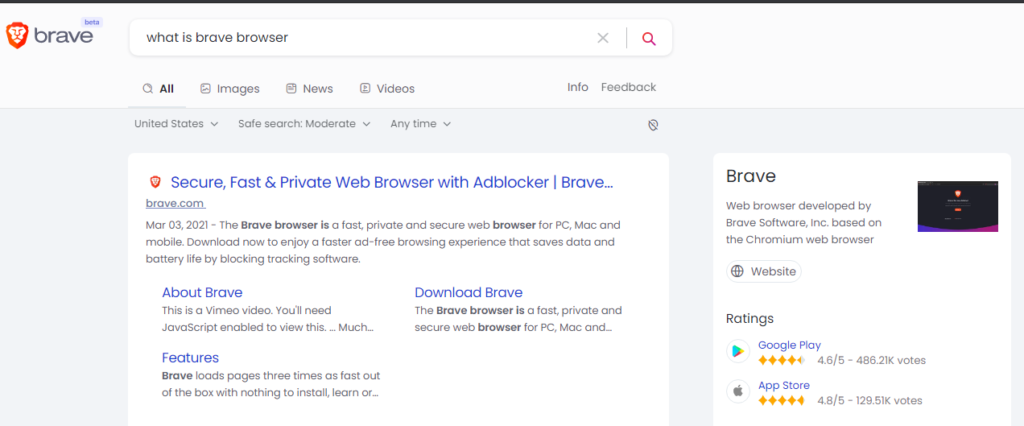

The closure of Cliqz offers some important lessons.

DuckDuckGo, which has most of its users in the US and Europe, has made a profit since 2014 and passed 100 million daily searches for the first time in January. Search engine Seznam has an 11 percent market share in its native Czechia, while Russia’s Yandex has 45 percent of its local market share. Google’s rivals can be successful in local markets and make profits on a much smaller scale. It remains to be seen how much of a dent any of these rivals can make in Google’s dominance-or if they actually need to if they’re going to succeed. Further competition comes from Neeva, built by former Google engineers who plan to use a search subscription model You.com, which is in an early testing phase and British startup Mojeek, which has crawled more than three billion webpages using its own crawler tech. There have been unconfirmed reports that Apple is building its own search engine, although this could see it lose billions of dollars that Google pays it to be the default search choice on its Safari browser. But we don’t suggest completely replacing your go-to search engine quite yet, especially if you like having as many options as possible when it comes to query results.And Google might soon have even more competition. If you like where it’s going, using it can help it get there. It’s going to take some time, but if Brave is able to pull it off, it could end up being a contender in both the browser and search engine rings.įor now, though, Brave Search is at its most basic. How Brave manages to return relevant results without algorithms or data-tracking is a little unclear, but the way they explain it is, “We rely on anonymous community contributions to refine results and community-created alternative ranking models to ensure diversity.” Final verdictīrave is striving to do what other browsers won’t (or can’t): Make an independent search engine with reliable results, all while keeping your data totally safe. While DuckDuckGo (opens in new tab), another top Brave Search competitor, also has anonymous search, it doesn’t use an independent search index like Brave does. Unlike Google, Brave Search doesn’t track what you do or sell your information to trackers. The competitionīrave Search’s biggest competitor is, of course, Google. If you opt to use the Brave browser, you don’t have to use Brave Search – there are six other search engines that you can choose from to set as the default. Platformsīrave Search can be used via the dedicated website at (opens in new tab), or it can be used with the Brave browser. There’s a feedback link on every results page, so you can tell Brave Search whether they got it right or wrong, which can help move it out of beta. The biggest drawback of Brave Search is that it’s still in beta, which means it doesn’t have highly refined results for certain languages, queries, or regions. If you’re using the Brave browser, you can search right from the address bar.Īs Brave Search is still in beta, Brave will ask you to provide feedback on its search results (Image credit: Brave) When you use the search page, you’ll enter your query in the search box, and suggested searches will auto-populate. User experienceīrave Search functions as any search engine should. Note that if you want the most privacy that Brave can offer, you need to pair its search functionality with the Brave browser. By clicking the "Info" link toward the top of the results page, you can see how many results came from third parties. “This mixing is a means-to-an-end toward 100% independence,” Brave says. Brave is building its own search index … but sometimes, it anonymously checks search results against third-party results, then mixes those results into its results page. Most search engines rely on third-party indexes instead of building and using their own. When it comes to that independent search index, here’s a recap of how Brave explains it. Brave is building its own search index instead of relying on third-party results (Image credit: Brave)


 0 kommentar(er)
0 kommentar(er)
